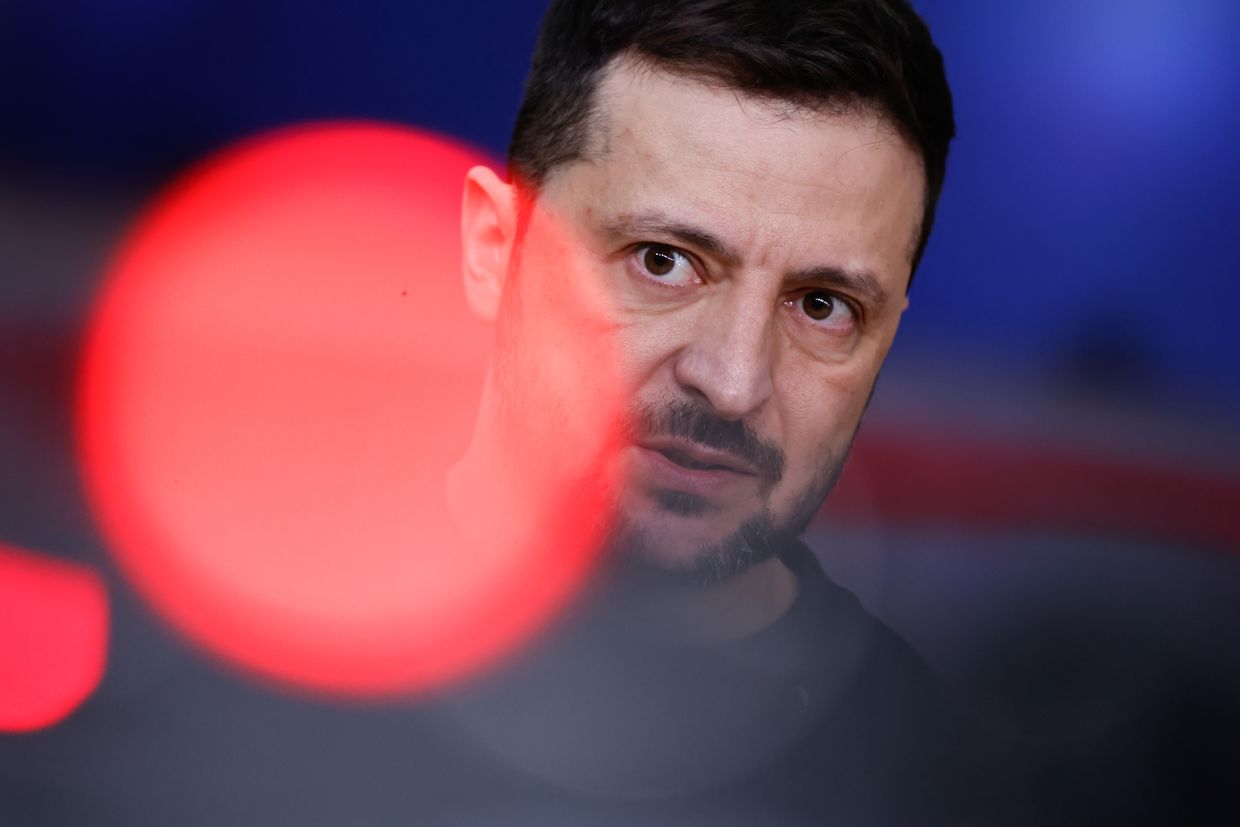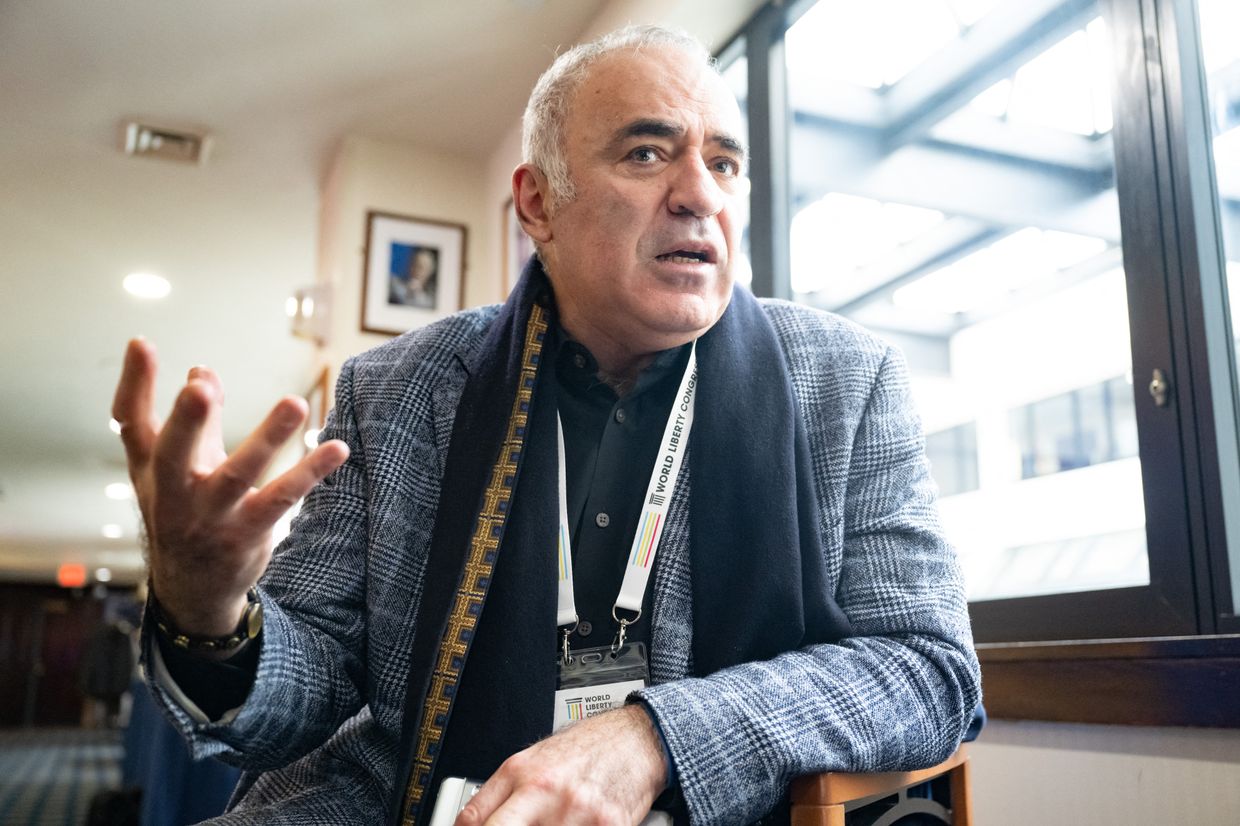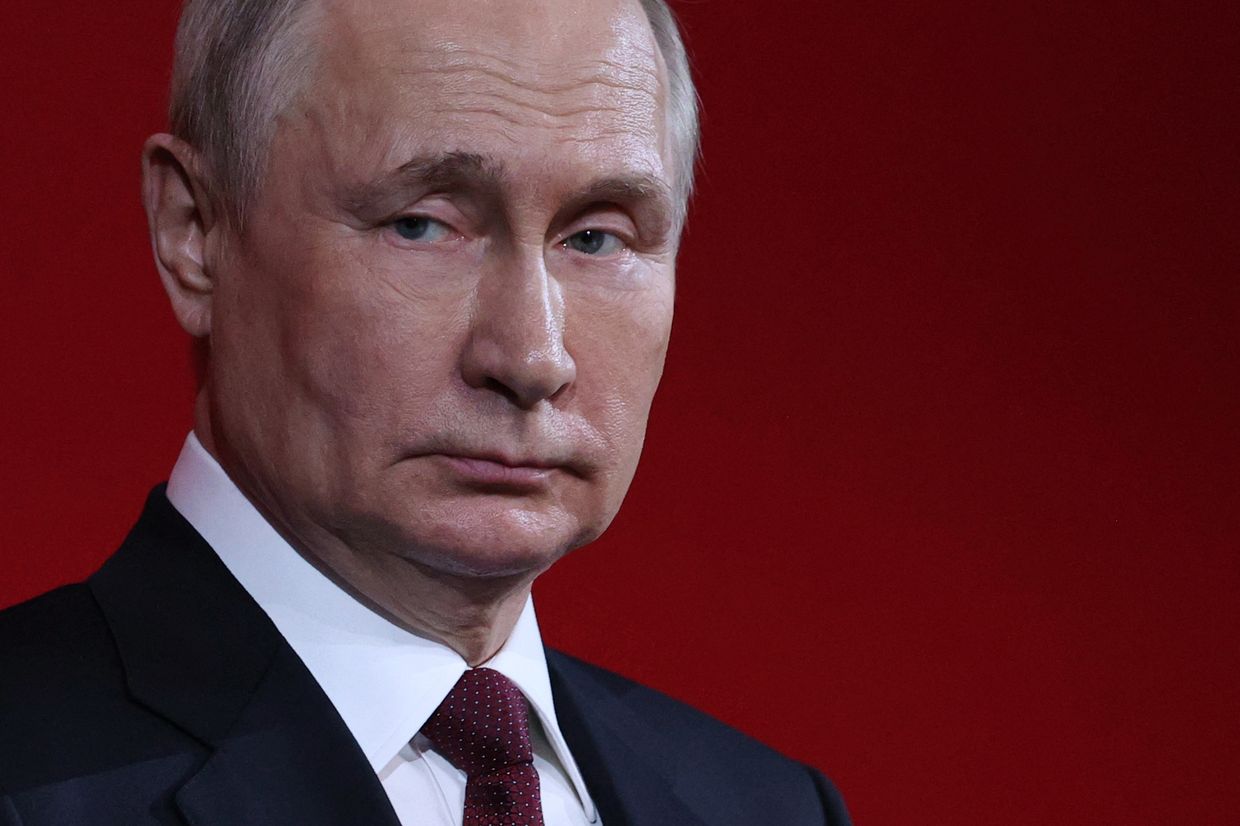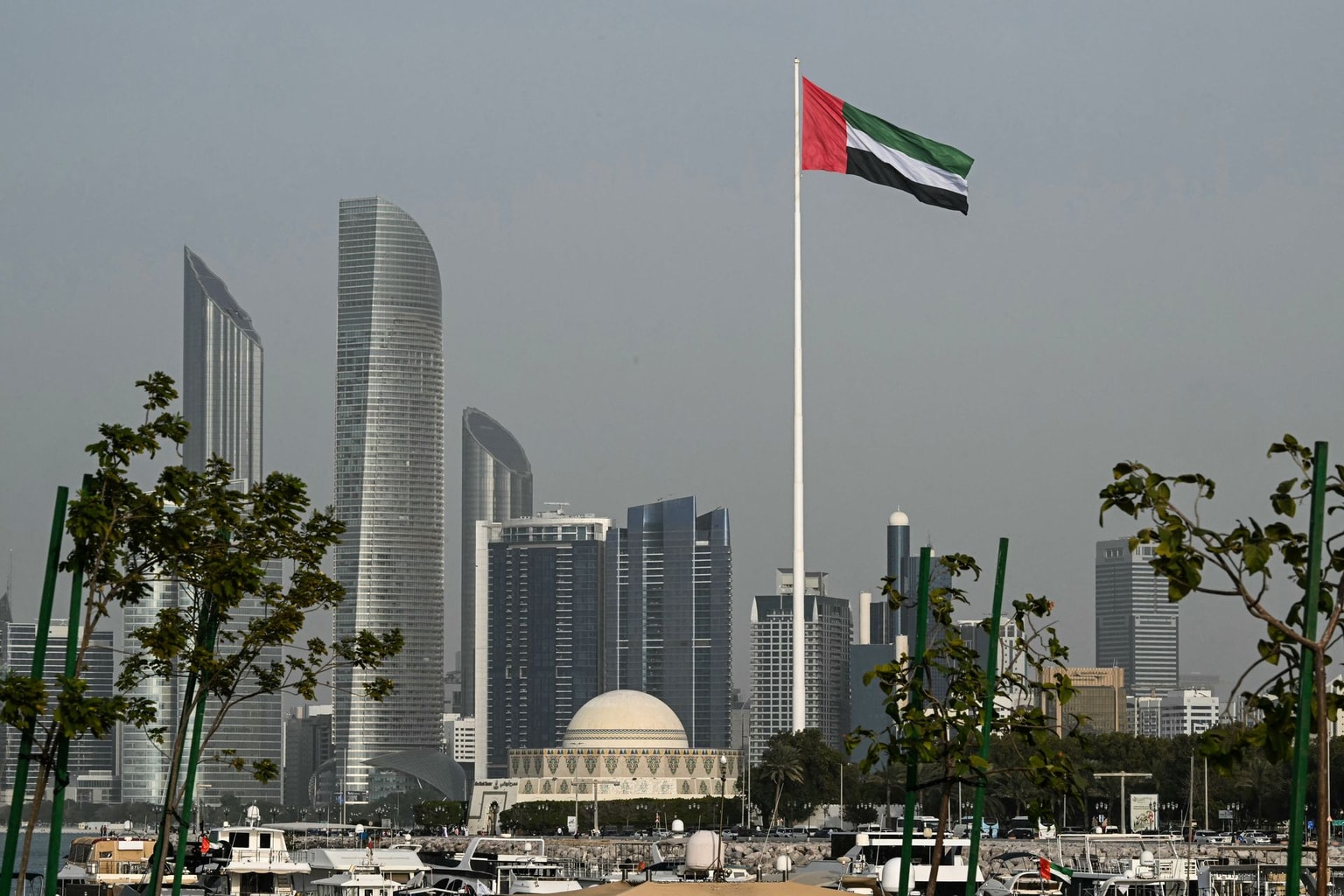Belarus Weekly: Belarus rejects Zelensky’s claim that Lukashenko apologized for role in Russia’s war

Belarus rejects President Volodymyr Zelensky’s claim that dictator Aleksandr Lukashenko apologized for Belarus’s role in Russia’s war, blames external forces for dragging Belarus into conflict.
Belarus shows opposition leader Viktar Babaryka for the first time after nearly two years of incommunicado detention.
Poland to complete border wall with Belarus by mid-2025 in response to the artificial migration crisis.
Lukashenko releases 20 political prisoners in eighth round of pre-election pardons amid raging repression.
Belarus enacts a decree to allow dissidents’ children to be classified as “in danger,” leading to them being taken away.
Belarus rejects Zelensky’s claim that Lukashenko apologized for his country’s involvement in Russia’s war
Belarusian dictator Alexander Lukashenko has dismissed a recent claim by Ukrainian President Volodymyr Zelensky that Lukashenko had apologized for Minsk’s involvement in Russia’s war against Ukraine, and doubled down on blaming external forces for dragging Belarus into the war.
President Zelensky said in an interview on Jan. 5 that Lukashenko had apologized to him for Minsk’s involvement in the war days after Russia’s full-scale invasion in February 2022, and offered the Mazyr refinery in Belarus as a target for a retaliatory strike.
Lukashenko’s press officer Natallia Eismont in response denied the claim, saying, “Belarus has nothing to apologize for.”
Lukashenko followed up on the issue on Jan. 7, making derogatory remarks about Zelensky and blaming unspecified external powers for dragging Belarus, Russia’s co-belligerent in the aggression against Ukraine, into the war.
“Why is he (Volodymyr Zelensky) yapping? What does he want? He’s been given a command: You have to do everything possible to drag the country (Belarus) into the war,” Lukashenko said in his address on Orthodox Christmas.
He said Belarus remains an “island of peace” amidst regional turmoil, which is envied by “enemies abroad.”
The Belarusian dictator also commented on Zelensky’s New Year’s address, which referenced Belarus’s opposition slogan “Long Live Belarus.”
“Let them say that we have a dictatorship here or whatever,” Lukashenko said. “Look; it’s better to have a dictatorship like in Belarus than a democracy like in Ukraine.”
In the interview with Russian-born U.S. podcaster Lex Fridman, Zelensky said that Lukashenko called him in the early days of the all-out invasion, apologizing for the invasion and shifting the blame to Russian President Vladimir Putin. He also said that Lukashenko proposed that Kyiv strike the Mazyr oil refinery, a strategic enterprise in Belarus.
While Lukashenko’s press office said the call was made due to the “emotional reaction” of Lukashenko’s son Nikolai, and denied Lukashenko made an apology, no comments were made regarding the other claims.
While Belarus, an ally of Russia, has not directly joined the war, the Russian army was allowed to use Belarusian territory as a jumping off point for its operations against Ukraine.
Belarus has also participated in the abduction of Ukrainian children. Lukashenko’s promise to maintain a “peaceful sky” over Belarus has also been broken, with swarms of Russian drones violating Belarus’s airspace in recent months — at least 390 Russian combat drone incursions have been reported in Belarus since July 2024.
Still, Lukashenko’s rhetoric has softened in recent months, coinciding with U.S. President-elect Donald Trump’s stating his goal of negotiating an end to the war. Whereas in the early days of the all-out invasion Lukashenko supported Russia, alleged that Ukraine was threatening Belarus, and admitted his status of a “co-aggressor,” in late 2024, Lukashenko and his officials asserted Belarus had a claim to a seat at any peace talks.
Belarus remains increasingly isolated from the West and reliant on the Kremlin following the fraudulent 2020 presidential elections in Belarus and Lukashenko’s subsequent crackdown on dissent, which spurred international condemnation.
Belarusian propaganda shows ex-candidate Viktar Babaryka after almost two years of being held incommunicado
Pictures and video of prominent Belarusian opposition figure Viktar Babaryka, one of the challengers of Belarusian dictator Alexander Lukashenko in the presidential election of 2020, were published on Jan. 8.
They were the first images of the politician seen in nearly two years. Since February 2023, Babaryka has been held incommunicado, isolated from communication with the outside world.
Lukashenko’s primary opponent, Babaryka, was arrested in 2020 and sentenced to 14 years in prison over alleged tax evasion and money laundering. Human rights advocates dismissed the charges as politically motivated, and said they were intended to knock Babaryka out of the presidential race.
The photos and video were published by former opposition blogger Raman Pratasievich, who was captured by Minsk after it forced the landing of a commercial flight he was on in 2021. After a period in jail, Pratasievich has since become a propagandist for the Lukashenko regime.
According to Pratasievich, the footage was filmed in Navapolatsk penal colony in the country’s north — rumored in numerous testimonies to be one of Belarus’s harshest prisons. The photos depict Babaryka, looking significantly slimmer, wearing black prison clothes with the yellow tag used to mark political prisoners. In a fragment of the shared video, he sends greetings and best wishes to his family.
The opposition figure has reportedly now received letters from his family and has written responses. He had been deprived of communication with his family and lawyers for over 630 days.
Belarusian democratic leader Sviatlana Tsikhanouskaya said she was relieved to see the images and called for an end to the practice of holding political prisoners incommunicado.
“Now, we must demand to see all others who remain hidden, and this cruel, inhumane practice must end,” Tsikhanouskaya wrote on X.
In November 2024, Lukashenko allowed a family visit to another prominent political figure — Maria Kalesnikava, who directed Babaryka’s presidential campaign in 2020 and who was later sentenced to 11 years in prison.
Kalesnikava was also held incommunicado for over 600 days. Her family was concerned for her health after she was admitted to intensive care in November 2022.
The situation with political prisoners in Belarus remains dire: While the Lukashenko regime has been releasing some political prisoners in small batches in recent months, high-profile political figures, such as former presidential candidates and their teams, remain behind bars.
Eight other high-profile political prisoners, such as former presidential candidate Siarhei Tsikhanouskiy, veteran politician Mikalai Statkevich, RFE/RL correspondent Ihar Losik, and Babaryka’s election team attorney Maksim Znak, are still being held incommunicado.
Poland to fully fortify its border with Belarus by mid-2025
Poland will spend over 2.5 billion zloty or around $611 million to complete its fortified border wall with Belarus by next summer, aiming to stop the influx of migrants, Polish Deputy Interior Minister Maciej Duszczyk told UK newspaper the Financial Times on Dec. 29.
Poland has long accused Russia and Belarus of weaponizing illegal migrants, who have been attempting to cross the Polish border into the European Union from Belarus in what is viewed in Poland as “hybrid warfare” against the bloc. The latest artificial crisis launched by the Lukashenko regime in 2021 was reignited by the flow of migrants with Russian visas.
The existing 180-kilometer (roughly 112 miles) fence on the Polish-Belarusian border will be extended to 400 kilometers (250 miles) and equipped with night-vision cameras, thermal imagers, and a new patrol road.
The border reinforcement is set for completion next summer, bringing the border security “as close to 100% as possible,” Duszczyk said. The deputy interior minister noted that the Lukashenko regime might still attempt to sabotage Poland’s infrastructure.
Speaking at an Orthodox Christmas celebration on Jan. 7, Lukashenko admitted there was a flow of migrants traveling through Belarus to Europe but denied his government’s involvement in it.
“I’ve always been honest about it,” Lukashenko has stated. “We won’t protect anyone from migrants. Especially not those who introduce economic sanctions against us.”
Lukashenko warned that migration, while threatening neighboring states, has also become “a challenge” for Belarus domestically.
Facing the migrant influx in 2021, the EU states bordering Belarus — Lithuania, Latvia, and Poland — began constructing physical barriers on their borders. At the end of 2024, the EU pledged 170 million euros to support this effort.
The easternmost EU states thwarted over 36,000 illegal border-crossing attempts in 2024, according to the border controls’ aggregate. The cross-border crisis reportedly took 59 lives between January and October 2024.
Tensions with Poland significantly escalated in May 2024 after a Polish soldier was stabbed to death with a makeshift spear as he was patrolling the border. Following the incident, Poland’s authorities reinstated a 200-meter-deep buffer zone along the country’s border and threatened to shut the border down completely.
Belarus and Poland now have only one checkpoint in operation after one was closed at the start of the migration crisis in 2021, and another was shut down in response to the jailing of Polish-Belarusian activist Andrzej Poczobut in February 2023.
As of Jan. 7, over 2,400 passenger cars and 90 buses were waiting at the border on the Belarusian side. The estimated wait time for them exceeds six days at the current rate.
20 political prisoners released in 8th round of pardons
Belarusian dictator Alexander Lukashenko has “pardoned” 20 more prisoners “convicted of extremist crimes,” his press office reported on Dec. 28.
At least 227 political prisoners have been released over the last year after receiving pardons, while the Lukashenko regime continued jailing more political opponents. According to the Viasna Human Rights Center, at least 1,721 individuals were tried on politically motivated charges in 2024.
The eighth round of pre-election pardons included eleven women and nine men. Fourteen of those released reportedly have chronic diseases.
Lukashenko’s press office claims the former prisoners have repented, but would remain under surveillance by the interior ministry.
Currently, over 1,250 political prisoners remain behind bars in Belarus. Most were jailed after the rigged 2020 presidential elections, which Lukashenko claimed he had won. Meanwhile, in the run-up to the voting on Jan. 26 — the first presidential race since nationwide unrest in 2020 — Lukashenko unleashed an intimidation campaign against his opponents.
Belarus’s government enacts decree allowing dissidents’ children to be taken away if parents face ‘extremism’ charges
The Belarusian government has adopted a decree allowing dissidents’ children to be classified as “in danger” if their parents are accused of spreading “extremist” materials.
The practice of using children as leverage against political opponents of Belarusian dictator Alexander Lukashenko is not new in Belarus: Following the 2010 protests, authorities attempted to remove the three-year-old son of then-presidential candidate Andrei Sannikau and journalist Iryna Khalip.
The decree, issued by the Council of Ministers and published on Jan. 1, is effective immediately. It equates offenses such as drunk driving or substance abuse with the distribution of content deemed “extremist.” The broadly defined category, which includes thousands of social media pages, independent media, and Telegram chats, spans over 1,400 pages in an Information Ministry register of “extremist” materials. Of 14,000 banned web pages in Belarus, 5,000 are designated extremist, according to Information Minister Marat Markov.
The decree stipulates that parents who are found guilty or even acquitted on charges of distributing extremist materials can have their children designated as living in a “socially dangerous situation,” making them eligible for state protection. The status does not immediately imply the child’s removal, but allows local authorities to remove a child from the family for up to six months without a court order under a Lukashenko decree from 2006.
Exiled Belarusian opposition leader Sviatlana Tsikhanouskaya has condemned the legislation. Amid the 2020 presidential race in which she challenged Lukashenko, Tsikhanouskaya relocated her two underage children from Belarus to the EU because of threats that they could be taken away.
“The regime is threatening to take children away from parents labeled as opponents of the dictator. This is the height of cruelty – making children suffer because their parents dare to want freedom,” Tsikhanouskaya wrote on X.
Belarusian Human Rights Center Viasna reported 5,890 administrative trials in Belarus last year, with many involving charges of distributing extremist materials. The human rights activists note that the exact number of cases is hard to establish due to the authorities’ attempts to disrupt the reporting of human rights abuses.
Political prisoner Yalena Maushuk was sentenced to six years in prison and stripped of her parental rights, while activist Yalena Lazarchyk’s child was sent to a shelter directly from school after Maushuk was detained in 2020.
In most cases, relatives have been able to assume custody of the children, but the use of this repressive tactic continues.














